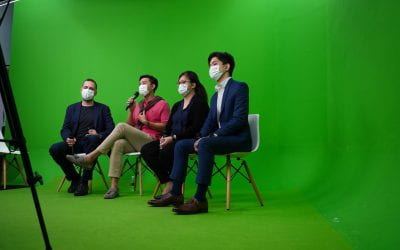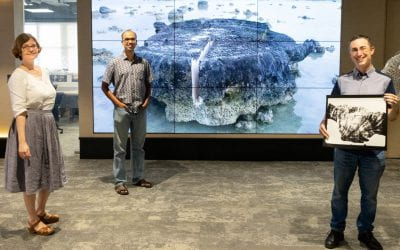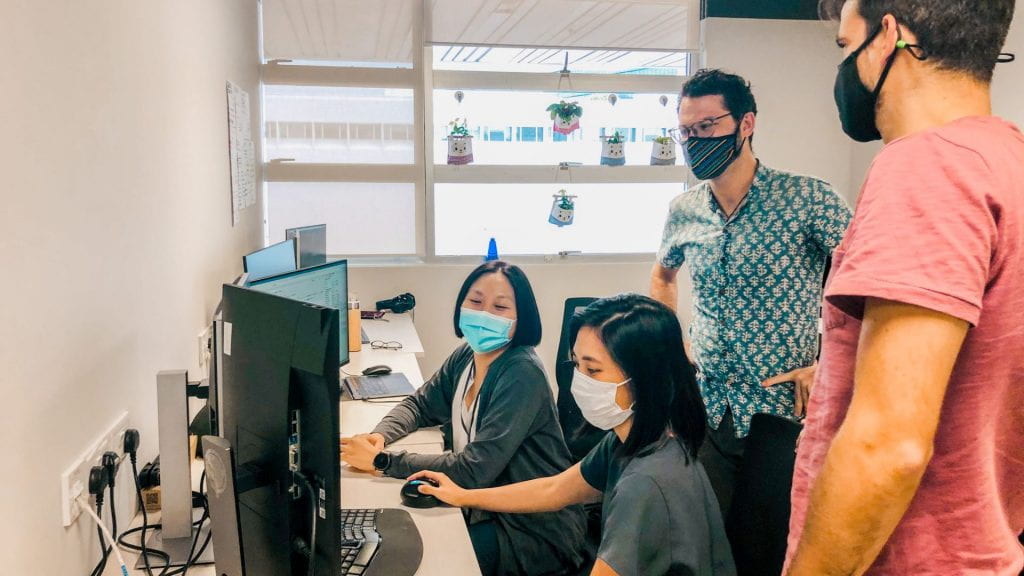On 29 January, NTU College of Science (CoS) invited prospective students to tune into an online Career Talk via livestream and to bring with them their burning questions on university life in NTU, an academic path in Science, and what career prospects they could have...
Black soldier flies – Possible solution to sustainable food production?
A strong inter-disciplinary team of researchers from NUS and NTU seeks to develop a blueprint for an urban system like Singapore to integrate food waste management and sustainable food production via black soldier flies (BSF), with their relevant expertise in insect rearing, urban design, sustainability as well as food safety and nutrition.
Meet the CoS Valedictorians: Victoria Cahyani Tanggono (ASE)
In this series, Science@NTU gets to know the 2021 CoS valedictorians! They give a quick overview of their time in CoS, and also offer a few words of advice on staying positive during these uncertain times. First up, we have Victoria Cahyani Tanggono from the Asian School of the Environment (ASE).
Preventing future tsunami impact on major Asian ports by characterizing Tohoku port response – new PhD thesis from ASE
Every year in CoS, PhD students defend their thesis, earning their doctorate which is the highest qualification in university. Science@NTU caught up with Dr Constance Chua from the Asian School of Environmental (ASE) about her PhD experience.
Seasonal ocean acidification linked to monsoon in Singapore
Scientists from ASE’s Marine Biogeochemistry Lab have discovered interesting patterns in ocean acidification linked to Singapore’s monsoon seasons. Using stable isotopes they were able to trace the path of carbon atoms from land to sea and air in and around Singapore.
College of Science Students Emerge Champions in 2021 International Natural Sciences Tournament!
Congratulations to Team Benthos on winning the International Natural Sciences Tournament (INST)! The INST Grand Finals concluded on 25 July 2021.
Tectonic plate subduction is a carbon sink – new discovery by Prof Redfern’s team
In a recent study published in Nature Communications, Prof Simon Redfern and his team show that subduction zones can be carbon sinks, contributing to the long-term storage of carbon in the deep Earth and thereby keeping it from re-entering the atmosphere as CO2. The flows of carbon between the Earth’s crust and the atmosphere are important processes regulating global atmospheric CO2 concentration.
ASE students research on plastic pollution and marine health in Singapore waters
EXPLORE! Grant awardees Roy Tan and Grace Tay will use novel techniques to achieve more accurate and efficient sampling of water and detection of marine microplastics and diatoms.
New insights into processes leading up to big earthquakes and tsunamis call for review of tsunami risk assessment
Two recent papers published in Nature Geoscience by researchers from ASE and the EOS Geodesy group shine new light on the geological processes leading up to earthquakes that can generate devastating tsunamis. In view of the new findings, earthquake and tsunami risk assessment need to be revised for coastlines near subduction zones in Asia and worldwide.
Post-Typhoon Goni – ASE Researchers Develop Damage Prediction Models
After Typhoon Goni hit the Philippines in 2020, researchers from ASE’s Disaster Analytics for Society Lab worked together to develop a damage prediction model, as well as hosted a mapathon, which has the potential to not only minimise greater loss in future disasters, but also to improve efficiency in relief efforts.










